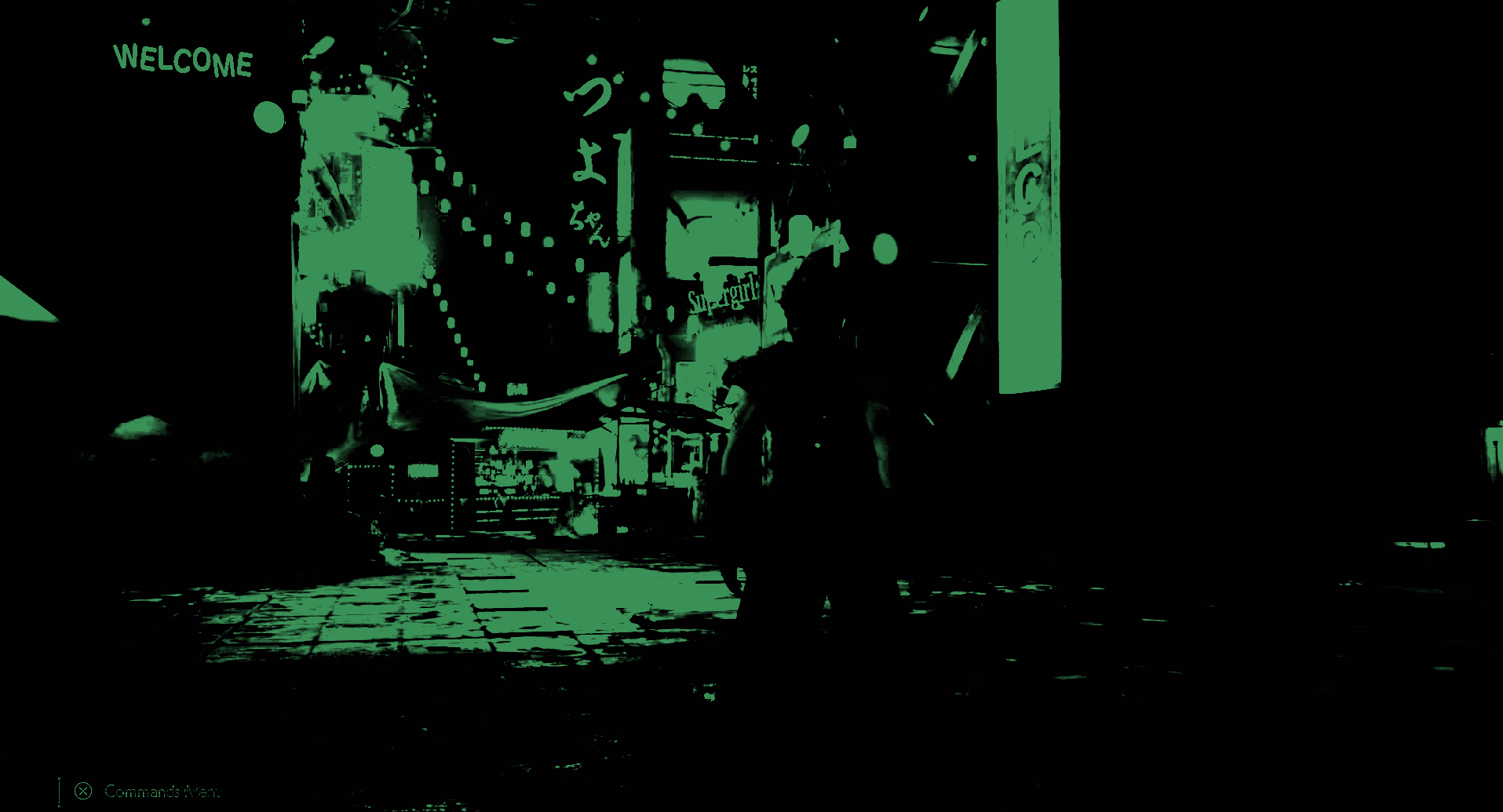
Midgar is a stratified city. Final Fantasy VII and its remake borrow real world architecture and urban planning to materialize its inequity, but they don’t just recreate it. The games use metaphor to make injustice more apparent—and then critique it. Wall Market is supposed to be a subversive space within this allusion, beyond the law and beyond the norms of other sectors above and below. Or so we are promised.
The visual metaphor of the underground is a well worn trope, but places like Wall Market are a less explored convention. Here on the margins of the margins is the opportunity to present the progressive ideals of our reality as transgressive actions in the hyperbolic fiction: sex work, trans humanism, drug use, and gender nonconformity to name a few. But this part is often done so lazily, reinforcing the hegemonic norms of fiction and reality. It says this is where the freaks and queers belong. Midgar is an excellent criticism of '90s corporate America, and yet Wall Market represents the limits of the authors' imagination. Humanity is only extended so far to those living under systemic oppression. In both the original Final Fantasy VII and its remake, Wall Market fails to subvert anything. The authors only pile on.
The most egregious failure of Wall Market is what is (not) depicted. The only transgressive acts that occur are organized violence, sex work, and sexual assault. The violence is fetishistic, sex (work) abundant, and assault not noted. Here in the underground that should supposedly serve the outskirts of society, the same conservative values of the presidents of Shinra and the US are recreated. The authors could imagine a world where sex work is more available, but not where it is safer for the workers. It all serves to indulge the presumed player, all filtered through a cisheterosexual male gaze, not to benefit the people living and working in Midgar. It’s a stark contrast to the humanity given to the rest of the underground.
Queerness isn’t a feature of Wall Market, but it is presented as entertainment for the presumed player. Others have written of the commodification of queerness that Remake borrows, and on some of the gender at play in this Midgar. But what I can’t get over is that in what is supposed to be such a progressive place, none of the women wear pants. No two men dance together in the gay club. Andrea, the effeminate gay caricature, is often surrounded by honey girls. And I’m not convinced he would be satisfied with the boring suits that cover up the honey boys either.
What follows Cloud's Jonathan Van Ness magical girl transformation is the worst of it all. Beauty doesn’t discriminate by gender, the game says, as it dresses you up like a girl. Andrea’s words are blatantly contradictory. It isn’t transgressive to degender what is inextricably tied up to gender in fiction and reality. But as a genderfluid person, I kinda like gender. Even if we could get beyond the systemic oppression that shapes our gender-filled lives, I feel like gender would still exist (at least in me). Gender without systemic oppression can work in fiction (as it does in the fiction of Friends at the Table’s Partizan), but, despite Andrea’s superficial claims, gender does exist in this setting. It’s why Cloud has to pass as a woman. What actually happens is that gender is relocated. Like a paper on Gender Trouble that deserves a C-, the game proposes that clothes (read: performance) change Cloud's gender. It conveniently maintains a binary and a sort of essentialism.
The commodification of queerness and the degendering of what should be a subversive act ruins something that was present in the original Final Fantasy VII. There is nothing left for the queers, no narrative to reclaim. As in graphics and animation, this more representative Midgar—idealistic in the most Platonic sense—narrows the possibilities of interpretation. Even if much of the surrounding story is the same, Chapter 9 of Remake denies us any sense of transness in the world, something the original could inspire in spite of Wall Market’s textual bigotry. Cloud’s story offered a subtextual reading for trans experience in the original, and, while Remake sticks to many of the same beats, transness is made inaccessible to the characters.
Remake is concerned with other themes that are weakened by the failure of Wall Market, a failure with so much potential. A queer narrative lies beneath the questions of authorship and ownership raised by the games final act, yet gendered conventions are enforced upon us as if director Tetsuya Nomura, et al. hold gender conformity in a higher regard than Final Fantasy VII. This was an opportunity to relocate the margins, to rewrite norms like Becky Chambers’ does in her Wayfarer series: DIY venues could be hosting riot grrrl bands, clubs could feature vogue. But in this moment Remake is adamantly conservative. So much energy was dedicated to showing us the pores of characters’ cheeks and animating the makeup below their eyes, but Remake never considers who is wearing pants.
///
Autumn Wright is a complete genderfuck. They study rhetoric and history in Orlando, FL and write about games, sex, and other things you love on the internet. Find her latest writing (and like their selfies) at @TheAutumnWright.